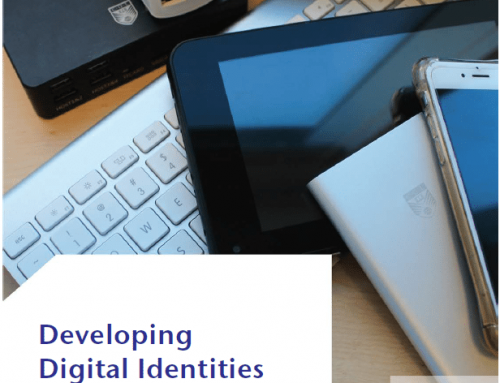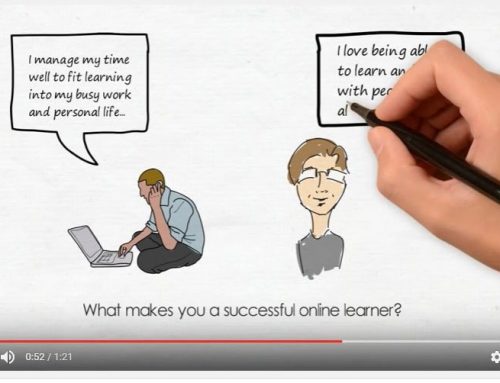Open Education Resources
I haven’t blogged much about my OER work on this blog as most of my writing around this area is scattered across other resources. This page attempts to draw some of this together.
I see my work in this field as being more broadly related to several other areas of work. These include my work on Learning Resources and Activities which goes back several years, work on information and digital literacies, experience as a Distance Learning Librarian, and work in the area of curriculum design and delivery and learning technologies generally.
Work with a specific focus on OERs and Open practice includes:
Good intentions: improving the evidence base in support of sharing learning materials.
McGill, L and Currier, S and Duncan, C and Douglas, P (2008) Project Report. http://ie-repository.jisc.ac.uk/265/
This work was a research study around sharing learning materials. The report offered a history of sharing practice in the UK, and examined the business cases for sharing. Two specific areas were discussed in detail – that of open sharing and community/subject-based sharing. Accompanying the report are several tables highlighting the evidence to support findings and noting the benefits of different approaches for different stajkeholder groups. The report and tables are a good source of information on the benefits, business cases and models around OER. The report concluded that the model which appeared to offer high levels of sustainability was a combined open and community-based approach. This has later been borne out by the JISC funded UKOER Programme. I have blogged about this and link to a keynote presentation. made at the Open Educational Repositories – Share, Improve, Reuse conference in 2009.
OER Infokit
I was the original writer of most pages in the JISC Infonet OER Infokit and continue to maintain and update this. This resource aims to be a one-stop place for people who need an overview of OERs and the surrounding landscape. It aims to both inform and explain OERs and the issues surrounding them for managers, academics and those in learning support. It is aimed at senior managers, learning technologists, technical staff and educators with an interest in releasing OERs to the educational community. It also draws together key messages and outputs from the JISC UKOER Programme. The resource is managed by JISC Infonet.
Digital Repositories Infokit
I also contributed to the Jisc Infonet Digital Repositories Infokit. This was originally developed by the Repositories Support Project (RSP) and I augmented it with information around learning and teaching repositories. This Infokit is also of relevance to the OER landscape as repositories play a significant role in their management, preservation and access.
JISC UKOER Synthesis and Evaluation Project
I take a lead role in the team which offers support to the JISC UKOER Programme, working with Allison Littlejohn and Isobel Falconer from Glasgow Caledonian University and Helen Beetham, another independent consultant. As part of activities to support the Pilot Phase we developed a framework to support evaluation and synthesis, and a wiki which we used to carry out synthesis and publish our final synthesis report. Both of these resources were taken forward into phase 2 and 3 of the programme and an accompanying blog also facilitates more timely synthesis messages.
Open practice
There is alot of discussion about OERs which tends to focus on the R and not the O or the E. For people who have been working in the field of Learning Resources and Repositories for many years alot of the conversations seem to rehash old discussions – particularly around sharing. I have written about the sharing issue in the Good Intentions report with my colleague Sarah Currier and I feel there are tensions between those who have been involved in the wider and older Learning Resources Debates and those who are coming from the newer OER camp (of course there are people who straddle both areas). This is similar to the Digital Literacy issue – with newer digital literacy people not always acknowledging the old debates, experiences, understanding and good practices from the e-Literacy/information literacy people. I am not against new perspectives and certainly welcome new practices but the competitive (rather than collaborative) world of learning technology does sometimes result in reinvention of the wheel, lots of blog posts saying what has been said before many times and rehashing of old arguments. A shift in focus from OER to open practice is I feel long overdue and I hope might move us forward.
MOOCs
I am currently following what is happening with MOOCs (massive open online course). I attended the most fantabulous MOOC – DS106 this summer and 4life everafter and have written a bit about this and done several blog posts as part of my assignments. This course links to my digital literacy work aswell. I am also attending and will contribute to the Change, education and technology mooc with my colleague Allison Littlejohn. MOOCs link to the broader picture of which OERs are just a part. I see MOOCs as a way to challenge our teaching and learning practice, to encourage and facilitate the inclusion of student generated content, peer review and feedback and generally make the learning experience exciting, challenging and fun… I see it as an open space where just enough structure is offered to support and scaffold any number of different learning pathways and connections with people and content.







[…] a recent post about my OER work I talk about a move from focussing on open educational resources to open practice. This situates […]